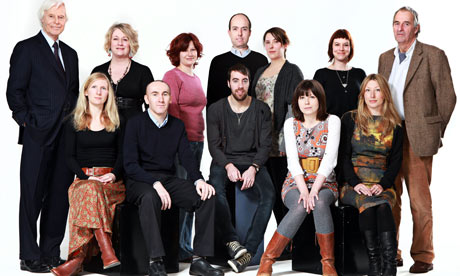There’s a disease that strikes English novelists of a certain age and fame, that makes them think whatever small talent they have at creating Times reviewed stories means they have an unique insight into human nature and the political realities of 21st century Britain. This usually manifest in rightwing babble about the problems of the day, as exclusively revealed to whichever newspaper with spare column inches to fill, as well as through novels that suddenly tackle big political issues in the way literary writers normally reserve for dabbling in science fiction: naively and ploddingly reinventing cliches better writers had long since abandoned and being proud of it. Martin Amis and Ian McEwan are the best examples of this disease, but Howard Jacobson seems determined to join them.
Jacobson is “best known for writing comic novels that often revolve around the dilemmas of British Jewish characters” as Wikipedia puts it. Not one to hide his Jewishness under a bushell and keen to let you know how his background makes him uniquely able to provide insights into the Israel/Palestinian conflict, he has been making a nuisance of himself for years in opinion pieces. As with Amis and McEwan, his politics also infected his fiction, metastasising in The Finkler Question, made unreadable by his politics.
So it comes as no surprise that when he saw the images of Asian shopkeepers defending their communities against the riots in London two weeks ago he saw something quite different from the rest of us:
The good thing that came out of the riots was a renewed sense of community. “How does one put this without sounding gross … it was terrific to see the Asian communities on telly and not to have to think about terrorism, and not to have to think about the thing I’m always thinking about… do they want to kill Jews?”
A remark on par with Amis’ similar ones on wanting to make Muslims suffer for 9/11. But there seems to be more going on with Jacobson, he seems convinced that pogroms could break out in London any minute and that like any good Jew he needs to be prepared. It’s not a mindset that’s not unique to him; I’ve stopped being surprised at the number of middleclass Jewish people living in England or America, never having suffered any discrimination in their lifetimes, convinced that it’s only a matter of time before the killings start again. If the most important event in your history is the Holocaust, it’s not surprising some people get a bit paranoid.
With Jacobson however it almost seems as if he would welcome persecution, that he feels agrieved that there are no pogroms in England and the number of real anti-semitic incidents (as opposed to people being accused of anti-semitism because they disagree with Israeli policies) is low and has remained low for decades. Hence remarks like the above, as to him it’s inconcievable that Asian people would not want to oppress him. Call it victim envy.
